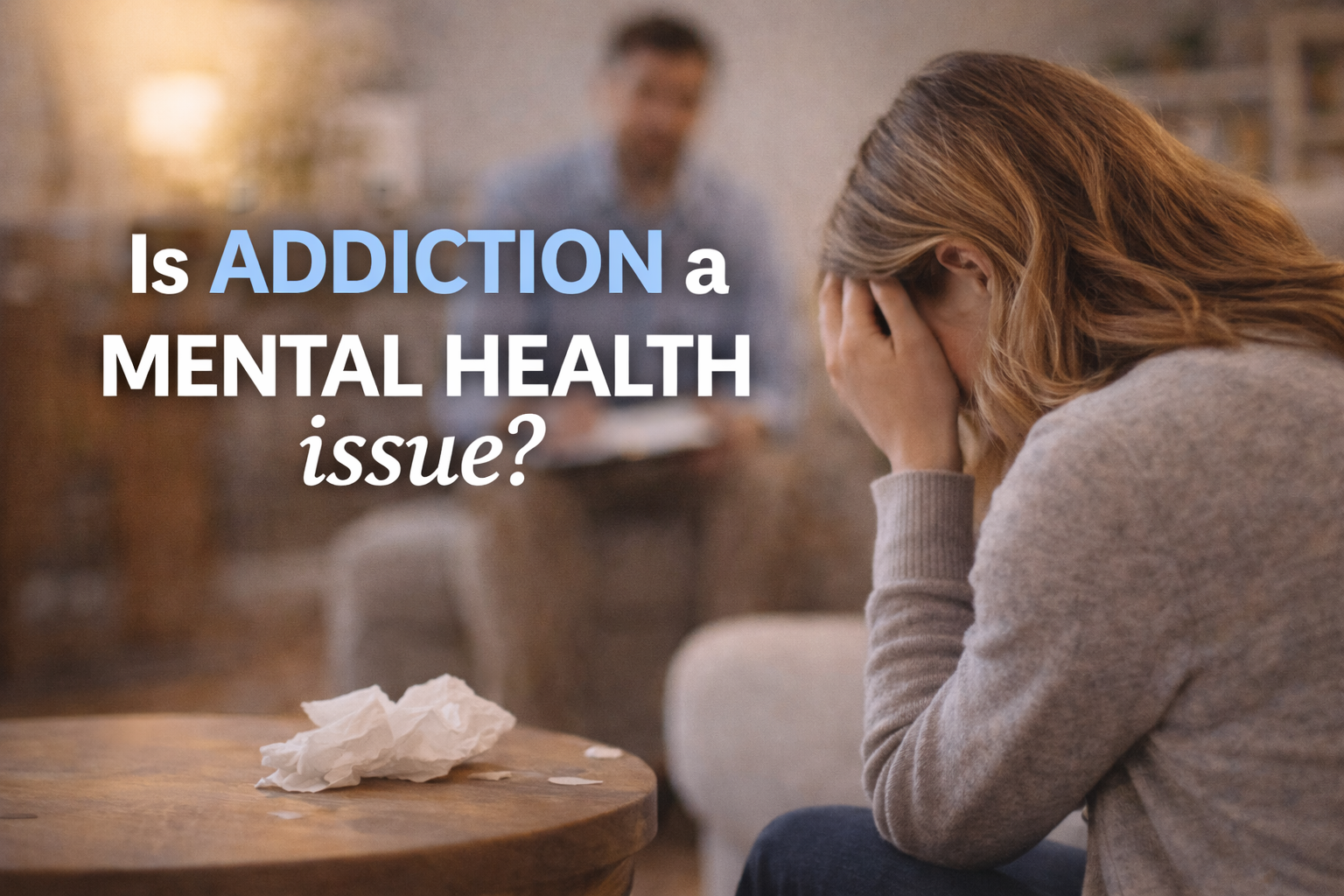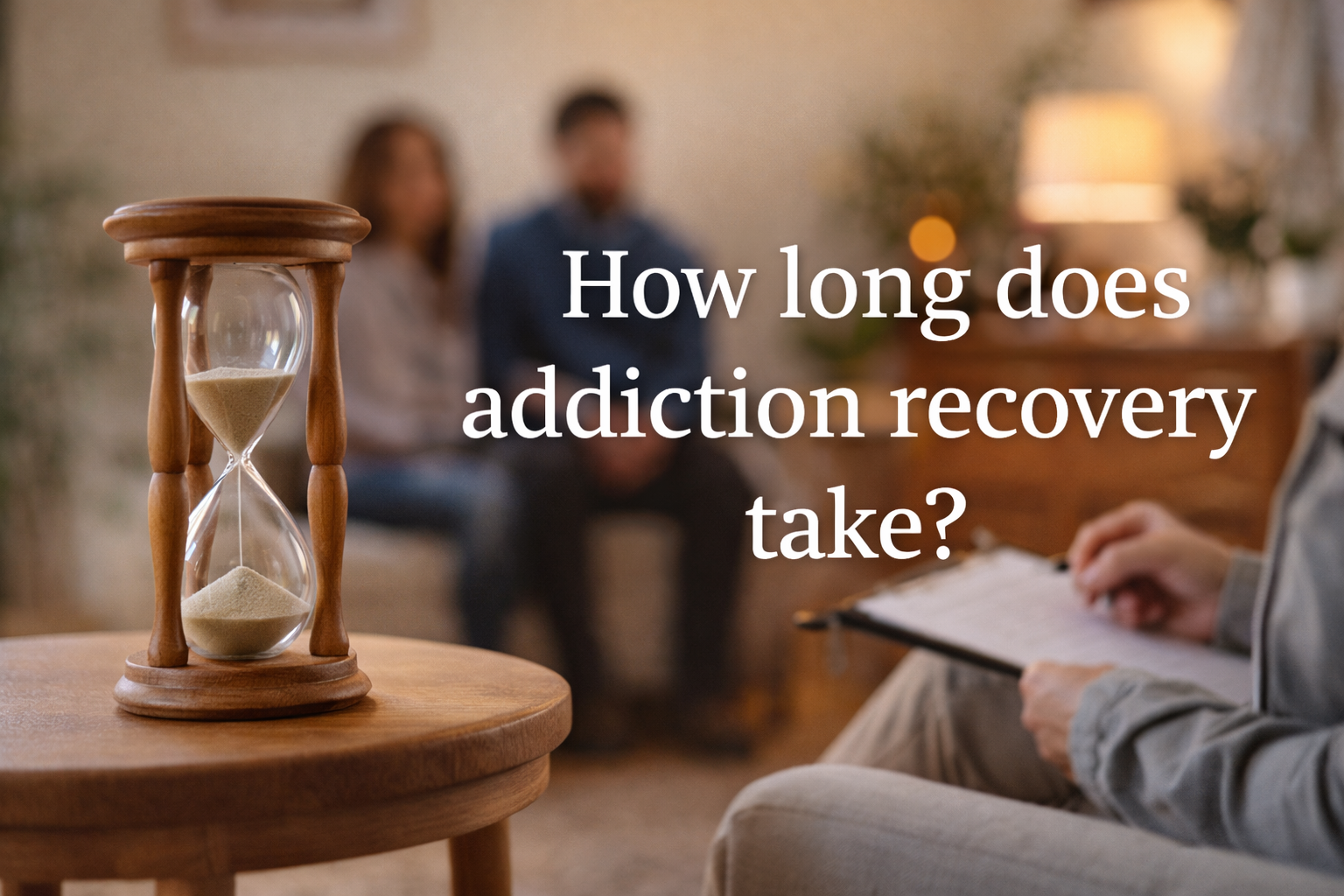Recognising the signs of drug or alcohol addiction is crucial for early intervention, effective treatment, and long-term recovery. Substance use disorders often develop gradually, and many people may not realise they have a problem until it begins to severely impact their health, relationships, or daily life.
Below, we break down the physical, psychological, and behavioural signs to watch for, as well as what to do if you notice these signs in yourself or a loved one.
Physical Signs of Drug or Alcohol Addiction

1. Changes in Appearance
People struggling with addiction often neglect personal hygiene and grooming. You may notice sudden weight loss or gain, bloodshot eyes, or unusual body odours related to alcohol or drug use.
2. Health Issues
Physical health problems can vary depending on the substance. Common examples include:
- Frequent nosebleeds or nasal damage (from snorting drugs)
- Track marks, bruises, or abscesses (from injecting drugs)
- Persistent cough, lung issues, or respiratory infections (from smoking substances)
- Unexplained injuries or frequent accidents while under the influence
3. Sleep Disturbances
Addiction can disrupt sleep patterns, causing insomnia, restlessness, or excessive sleeping. This often depends on whether the substance is a stimulant (like cocaine) or a depressant (like alcohol).
Psychological Signs of Drug or Alcohol Addiction

1. Mood Swings
Frequent and extreme mood changes — from irritability and anger to sudden bursts of euphoria — are common.
2. Anxiety and Depression
Ongoing substance use can trigger or worsen mental health conditions, including feelings of hopelessness, guilt, shame, and loss of motivation.
3. Paranoia, Hallucinations, or Delusions
Some substances can cause users to experience paranoia, see or hear things that aren’t there, or believe things that are not true.
Behavioural Signs of Drug or Alcohol Addiction

1. Secrecy and Isolation
People may become more withdrawn, lie about their whereabouts, or hide evidence of their substance use.
2. Neglecting Responsibilities
Addiction often leads to poor performance at work or school, missed deadlines, unexplained absences, and financial troubles due to spending money on alcohol or drugs.
3. Risky Behaviours
Substance misuse can lead to impulsive or dangerous actions, such as drunk driving, unsafe sex, or criminal activity.
Additional Signs to Look Out For
- Increased Tolerance: Needing larger amounts of the substance to feel the same effects.
- Withdrawal Symptoms: Feeling physically ill or anxious when not using the substance.
- Loss of Control: Being unable to stop or cut down despite wanting to.
- Cravings: Intense urges or preoccupation with obtaining the substance.
When to Seek Help
If you recognise these signs in yourself or someone you care about, it is important to act quickly. Addiction is a medical condition, not a moral failing — and professional help is available.
Start by speaking with a healthcare professional, addiction specialist, or local support group. Early treatment greatly improves the chance of successful recovery.
Where to Get Help
Taking the first step toward recovery can feel overwhelming, but you don’t have to do it alone. If you or someone you care about is struggling with drug or alcohol addiction, reach out for support today.
At Solace Asia, we specialise in evidence-based treatment for substance use disorders. Our compassionate team provides personalised care, therapy, and support every step of the way.
If you or a loved one need help, contact us for a confidential consultation. Our team is here to listen without judgement and help you find the care and guidance you need to move forward with hope and confidence.

.jpg)


.jpg)



